16+ SAMPLE Postnuptial Agreement
-
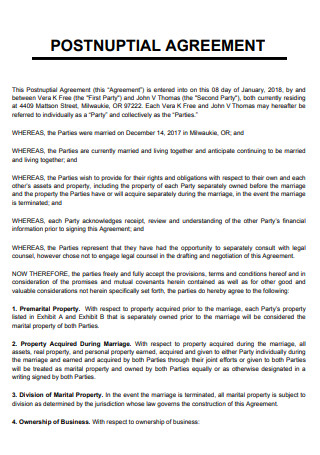
Postnuptial Agreement
download now -
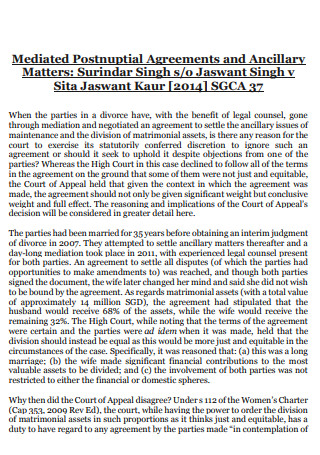
Mediated Postnuptial Agreement
download now -
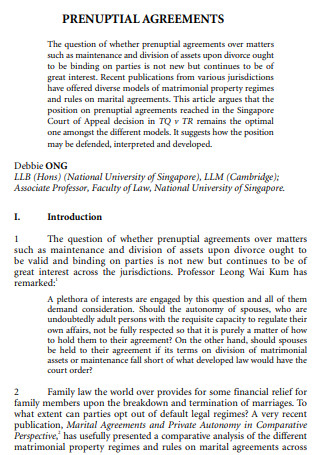
Sample Postnuptial Agreement
download now -
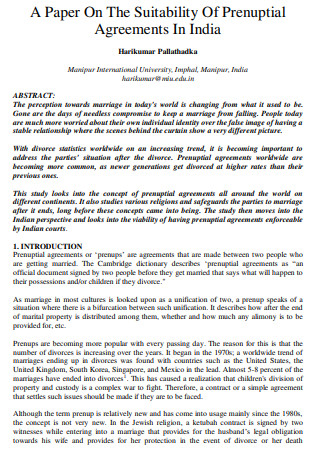
Suitability of Postnuptial Agreement
download now -
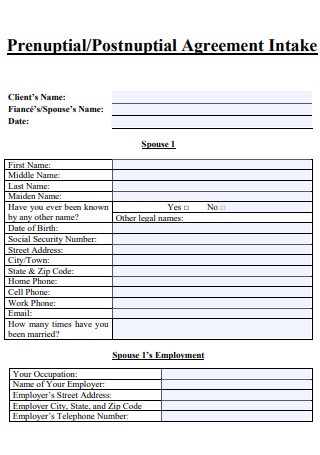
Postnuptial Agreement Intake
download now -
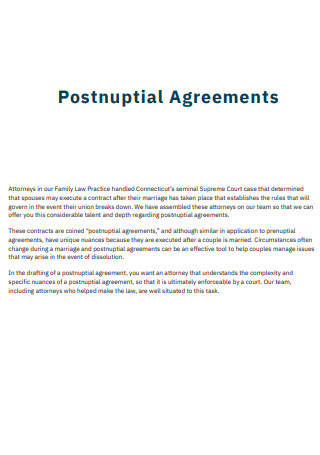
Simple Postnuptial Agreement
download now -
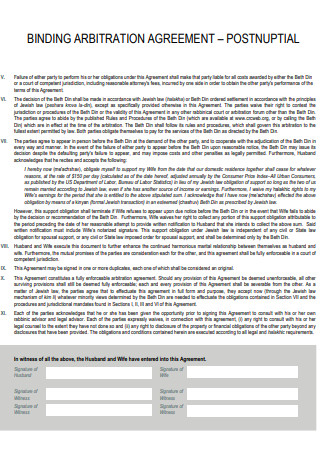
Binding Arbitration Postnuptial Agreement
download now -
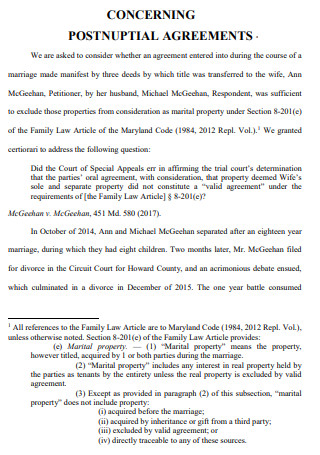
Concerning Postnuptial Agreement
download now -
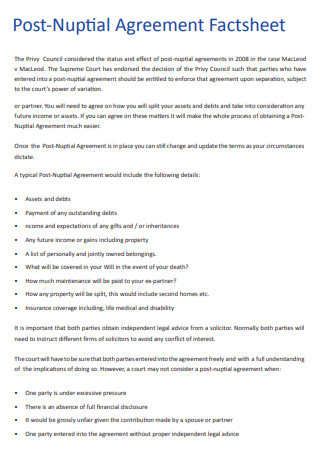
Postnuptial Agreement Factsheet
download now -
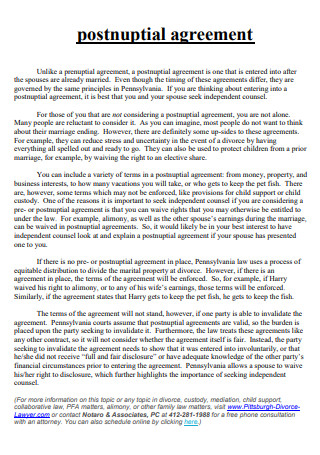
Basic Postnuptial Agreement
download now -
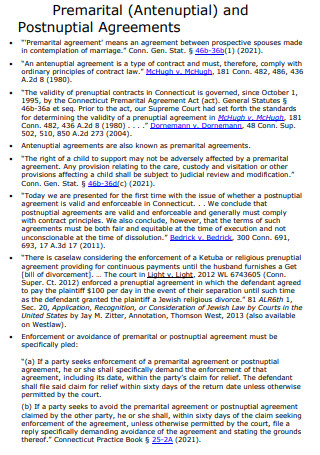
Premarital and Postnuptial Agreement
download now -
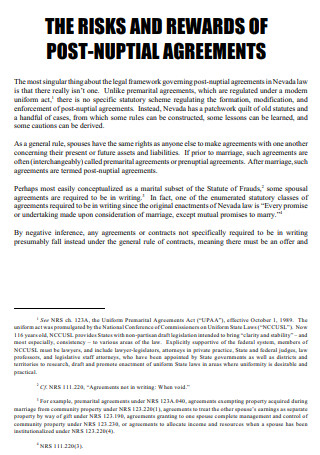
Risk and Rewards of Postnuptial Agreement
download now -
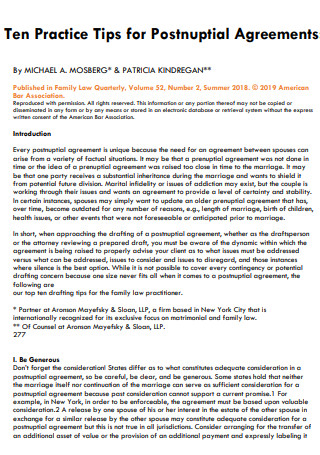
Tips for Postnuptial Agreement
download now -
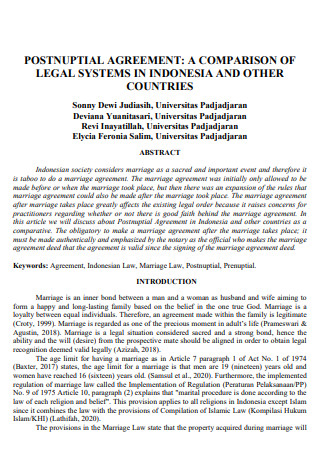
Postnuptial Agreement Example
download now -
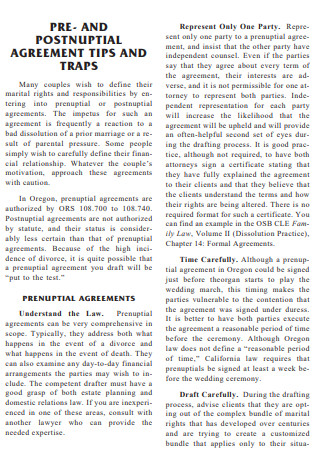
Pre and Postnuptial Agreement
download now -
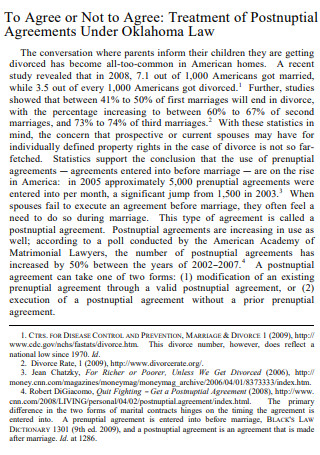
Treatment of Postnuptial Agreement
download now -
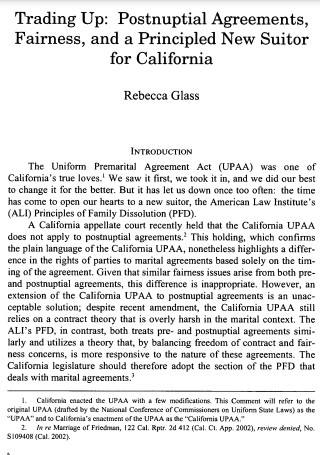
Postnuptial Agreement Template
download now
FREE Postnuptial Agreement s to Download
16+ SAMPLE Postnuptial Agreement
What Is a Postnuptial Agreement?
Components of a Postnuptial Agreement
How To Guarantee that a Postnuptial Agreement is Valid
Reasons Behind the Creation of a Postnuptial Agreement
FAQs
Are postnuptial agreements legally binding?
Is having a postnuptial agreement a good idea for marriage?
What is the difference between a prenuptial and postnuptial agreement?
What Is a Postnuptial Agreement?
A postnuptial agreement is a contract between spouses right after entering into marriage. It outlines the ownership rights of the couple in terms of financial assets if and when a divorce happens. The agreement also specifies the responsibilities surrounding the children of the couple and all obligations throughout the union. Postnuptial agreements are also known as post-marital agreements. Similar to prenuptial agreements, the purpose of postnuptial agreements is to alleviate the tension between spouses when it comes to financial concerns. Entering in this arrangement allows the couple to have an equitable distribution of their assets if and when the marriage dissolves and ends up in signing divorce agreements. For many people, writing any type of marital agreement is taboo and does not express the sanctity of marriage, love, and union. However, if it brings peace of mind and remedy to any financial discomfort, the spouses can choose on their accord to engage in the agreement to keep marital harmony.
According to the information from the Centers for Disease Control and Prevention and the National Center for Health Statistics, the number of marriages in the United States reached up to 2.015 million in 2019. In the same year, over 745 thousand couples ended up in divorce from 45 reporting states and D.C.
Components of a Postnuptial Agreement
When it comes to writing postnuptial agreements, accepting and honoring the contents of the document all depends on the state law that governs it. However, it is safe to assume that just like other legal documents, there are terms and conditions that the spouses must consider gaining the most out of the postnuptial agreement. The following section details the components of a postnuptial agreement that a married couple must indicate in their document with descriptions for better understanding.
How To Guarantee that a Postnuptial Agreement is Valid
Similar to other legal documents, there are certain requirements that the postnuptial agreement must have for it to be legally binding. For the agreement to be valid and enforceable, there are particular elements at minimum that it must satisfy. The section below details these elements, along with explanations for better comprehension.
-
1. The Postnuptial Agreement Must Be in Writing
Oral postnuptial agreements are not valid and will have difficulting holding up in a court of law.
-
2. Parties in the Agreement Must Consent and Have Full Duress on the Contents of the Agreement Before Signing
Both parties of the postnuptial agreement must sign the agreement voluntarily with full knowledge of its contents intentionally. Any indication that one of the parties has to suffer coercion or threats for them to affix their signatures makes the postnuptial agreement null and void.
-
3. The Postnuptial Agreement Must Be Fair for the Involved Parties
It is critical for the agreement not to be unconscionable. If courts find out that the postnuptial agreement appears to be unjust or in favor of only one party, according to the content, facts, and circumstances, it will not hold up in court and become unenforceable.
-
4. Ensure that the Postnuptial Agreement Contains Only the Essential, Factual, and Comprehensive information
Full and fair disclosure of the contents and information of the postnuptial agreement is necessary to guarantee that the document is valid and enforceable. At the time the spouses engage in writing the agreement, each party must state a full and fair disclosure of all of their assets, liabilities, and income statements. It is an essential element to make the document valid and enforceable since the postnuptial agreement needs to determine how the assets, liabilities, and support obligations will unfold if and when the marriage ends. If the information that one party discloses becomes compromised, inaccurate, or incomplete, the court is unable to enforce the contents of the agreement.
-
5. The Law Must Properly Execute the Contents of a Postnuptial Agreement
Postnuptial agreements follow the different requirements for each state, and the document must adhere to them. For the postnuptial agreement to be enforceable and valid, some states require a legal notary for the signatures of the spouses. There are also instances that a state imposes additional requirements like having a witness for the signing of the document.
Reasons Behind the Creation of a Postnuptial Agreement
A married couple can seek a postnuptial agreement for any reason they choose. It can be something as simple as not being able to write a prenuptial agreement before the marriage. When using a postnuptial agreement, the couple can think about and make decisions about several financial considerations they want to address along the way, even after the exchange of vows. Postnuptial agreements tackle issues relating to money and asset security in the event of a divorce. If you are ever planning to create one after the marriage, the section below provides situations and considerations to secure one with your spouse.
FAQs
Are postnuptial agreements legally binding?
Most postnuptial agreements are valid and fully enforceable if it adheres to the requirements of state laws connecting to inheritance issues, child visitations and custody, and monetary support in the case of divorce.
Is having a postnuptial agreement a good idea for marriage?
In certain situations, establishing a postnuptial agreement is beneficial for couples that do not have a prenuptial agreement.
What is the difference between a prenuptial and postnuptial agreement?
The most significant difference between the two documents, as the name suggests, is that prenuptial agreements happen before a wedding, while negotiations of the postnuptial agreements occur after.
People must understand that discussing the division of assets, property, and other financial concerns is not taboo for married couples. It is more meaningful to have a sense of security when it comes to handling one’s assets and finances. A postnuptial agreement works wonders for couples that prioritize safety in finances when things don’t go as planned. For the benefit of spouses and their families in the worst-case scenario, some provisions and conditions are already in place and are just waiting for implementation. Download a postnuptial agreement to secure finances for both individuals by downloading the 16+ SAMPLE Postnuptial Agreement in PDF today, only at Sample.net.
